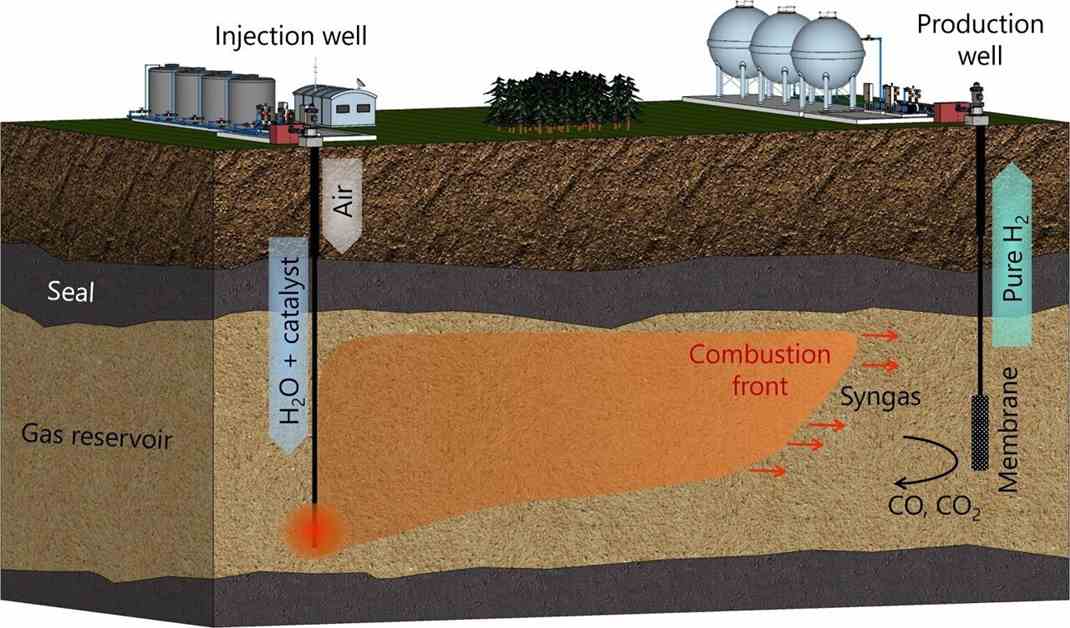Scientists at Skoltech have discovered an innovative method to convert natural gas into hydrogen with high efficiency right at the gas field itself. By introducing steam and a catalyst into a well and igniting the gas with oxygen, they were able to achieve a 45% efficiency in producing hydrogen. This breakthrough could play a significant role in transitioning from fossil fuels to cleaner energy sources like hydrogen.
Currently, a large portion of our energy is derived from fossil fuels, which release harmful carbon dioxide into the atmosphere when burned, leading to environmental degradation and climate change. While natural gas is considered cleaner than oil, it still contributes to carbon emissions when combusted. In contrast, hydrogen combustion only produces water vapor, making it a much greener alternative.
The team from Skolkovo Institute of Science and Technology in Moscow proposed extracting hydrogen from natural gas reservoirs, which are rich in hydrocarbons containing hydrogen molecules. By converting these hydrocarbons, a substantial amount of green fuel can be obtained. The process involves injecting steam and a catalyst into the well, followed by igniting the gas with oxygen to facilitate the conversion of natural gas into a mixture of carbon monoxide and hydrogen.
During the experiment, the researchers maintained high pressure inside lab reactors to simulate real gas reservoir conditions. By analyzing the gases produced during the reaction, they determined that the optimal temperature for hydrogen production was 800°C with a high steam content. The efficiency of the process was found to be up to 45%, depending on factors like temperature and rock composition.
The researchers plan to further test their method in actual gas fields to evaluate its real-world applicability. This innovative approach, utilizing established technologies in a novel way, shows promise for producing hydrogen directly at gas fields, paving the way for a cleaner and more sustainable energy future.
The study was published in Fuel, and more information can be found in the research article by Elena Mukhina et al. This groundbreaking research could revolutionize the way we produce hydrogen and accelerate the transition to a greener energy landscape.

















